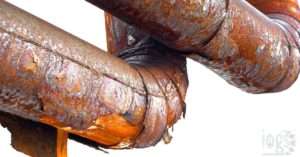Quality control jobs encompass a range of roles, including QC engineer, that are essential for maintaining excellence in the industry.
The Institute for Oil & Gas Sector (IOGS) recognizes the significance of quality control. It offers a comprehensive certification course, the Project Quality Professional (PQP), which prepares individuals for rewarding careers in quality management.
Let’s delve into the world of quality control jobs and explore the role of a QC engineer in this industry.

Understanding Quality Control Jobs
Quality control jobs are crucial in various industries, including manufacturing, construction, healthcare, and the oil and gas sector. These roles focus on maintaining and improving the quality of products, services, and processes to ensure customer satisfaction, regulatory compliance, and overall operational excellence.
In the oil and gas industry, where precision, safety, and reliability are paramount, quality control plays a critical role. It encompasses a range of positions, each with specific responsibilities and expertise. Let’s explore some of the key quality control job roles and their significance in the industry.
Quality Control Inspector
Quality control inspectors conduct inspections and tests to ensure that products or components meet the required specifications and quality standards.
Throughout the project lifecycle, inspectors in the oil and gas sector check equipment, materials, and structures to ensure compliance with industry norms, standards, and legal requirements.
They use various tools and techniques to assess the quality and functionality of items, identify defects or non-conformities, and document findings.
The few popular quality control jobs includes;
Quality Assurance Analyst/Engineer
Quality assurance (QA) professionals play a proactive role in preventing quality issues by implementing quality management systems and processes.
They develop and enforce quality standards, policies, and procedures, often working closely with project managers and other stakeholders.
QA analysts/engineers perform risk assessments, develop quality control plans, and conduct audits to ensure adherence to established protocols.
They also analyze data, identify trends, and implement corrective and preventive actions to continuously improve quality performance.
Quality Control Manager
Quality control managers oversee the overall quality control activities within an organization or project.
They are responsible for developing quality control strategies, setting objectives, and managing resources to achieve quality goals.
These managers collaborate with various teams to establish quality control plans, monitor progress, and address any quality-related issues.
They also ensure compliance with relevant regulations and industry standards, and they provide leadership and guidance to quality control personnel.
Quality Control Engineer
Quality control engineers focus on the technical aspects of quality control, employing engineering principles to optimize processes and ensure product or project quality.
They design and implement quality control procedures, including inspections, tests, and data analysis methods. QC engineers work closely with project teams to identify quality requirements, establish metrics, and monitor compliance.
They may also be involved in developing and maintaining quality control equipment and software systems.
Quality Control Technician
Quality control technicians offer hands-on support for quality control activities. Additionally, they operate testing equipment, perform inspections, collect samples, and conduct routine tests.
Moreover, these technicians adhere to established protocols, record data, and assist in data analysis and reporting. Furthermore, they work under the supervision of quality control managers or engineers to ensure effective and efficient quality control processes.
QC Engineer: Ensuring Precision and Compliance
In quality control jobs, the role of a QC engineer is crucial. Moreover, they design and implement quality control procedures, conduct inspections, and analyze data for compliance.
Additionally, QC engineers collaborate with project teams to identify issues, mitigate risks, and optimize processes for desired quality outcomes.
The Role of a QC Engineer in the Oil and Gas Industry
Developing Quality Control Plans
QC engineers collaborate with project managers and stakeholders to develop comprehensive quality control plans. Additionally, these plans outline the necessary procedures, inspections, and tests to uphold quality standards throughout the project lifecycle.
Implementing Quality Control Processes
QC engineers execute quality control plans, ensuring project stages meet established requirements. Additionally, they oversee inspections, audits, and tests to identify deviations or non-conformances, taking appropriate corrective actions.
Ensuring Compliance
QC engineers remain updated with industry regulations, codes, and standards to ensure project compliance. Moreover, they verify the presence of relevant specifications, documentation, and permits, assuming responsibility for these tasks.
Data Analysis and Reporting
QC engineers collect and analyze data from inspections, tests, and audits. Additionally, they generate reports highlighting findings, including non-compliance issues, and provide improvement recommendations. Moreover, these reports serve as crucial tools for decision-making and continuous quality enhancement.
Continuous Improvement
QC engineers take a proactive approach to identify project improvement areas. Additionally, they collaborate with cross-functional teams to implement corrective actions, enhance processes, and optimize quality control procedures.
Joining the Institute for Oil & Gas Sector’s Project Quality Professional (PQP) Course:
The Project Quality Professional (PQP) certification course offered by the Institute for Oil & Gas Sector (IOGS) is an online course designed for individuals interested in pursuing quality control careers within the oil and gas industry. This comprehensive program aims to equip participants with the necessary knowledge, skills, and tools to excel in quality management.
Moreover, the PQP course offered through the IOGS Learning Management System (LMS) focuses on providing a strong foundation in quality control principles and practices.
By enrolling in the PQP course, participants gain access to expert instructors who guide them through an industry-relevant curriculum.
Furthermore, the course covers essential topics such as quality management systems, risk assessment, inspection techniques, and quality assurance.
These areas of study are crucial for individuals seeking to pursue careers as QA QC Managers, Inspectors, Supervisors, Engineers, and Technicians within the field of quality control.
To gather detailed information about the PQP course, please refer to the course page on the IOGS website: https://www.iogs.org/project-quality-professional-certification. By visiting this page, you will find the relevant contents and descriptions related to the course.
Additionally, upon successful completion of the PQP course, graduates can explore a wide range of job opportunities in quality control within the oil and gas industry. These opportunities include positions such as QA QC Manager, Inspector, Supervisor, Engineer, and Technician roles.
Conclusion
Quality control jobs are crucial for maintaining excellence in the oil and gas industry. Additionally, as a QC engineer, you guarantee precision, compliance, and continuous improvement.
Moreover, the Institute for Oil & Gas Sector’s Project Quality Professional (PQP) course provides aspiring professionals with the chance to enhance their skills and knowledge in quality control roles.
Furthermore, by enrolling in this certification program, you unlock opportunities for a rewarding career in the oil and gas industry.
Not only will you contribute to project success and safety, but you will also take the initial step towards a promising future. Don’t hesitate to join the PQP course today.
Course Link: https://www.iogs.org/project-quality-professional-certification
Video Link: https://www.youtube.com/watch?v=AHH2fQra1YM
Institute Website: https://www.iogs.org/










